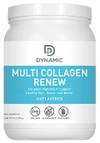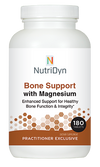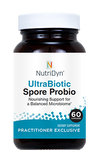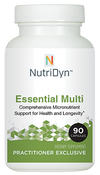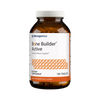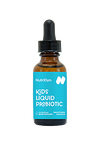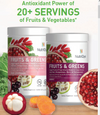8 Simple Ways to Spot Bogus Health Fad/Claims
- News
- 20 Oct, 2019
Yvette d'Entremont shares with Dr Direct 4U HealthCare Professionals how to recognize 8 Simple Ways to Spot Bogus Health Fad/Claims
https://www.self.com/story/spot-bogus-health-claim
Here are some simple rules
1. Does it promise too much?
Like a lot of other people who are trying to manage their weight or find cures for health problems, I have overpaid for, sworn by, and eventually given up on lot of different health fads, and I’m not alone. In 2018 the global weight-management market was valued at $212 billion, and the wellness industry was worth a staggering $4.2 trillion in 2017. With a constant stream of oftentimes mixed messages about what to put into our bodies for weight management, overall health, longevity, and even to manage specific medical conditions, it feels damn near impossible sometimes to tell which trend is a healthy habit you should pick up and which will be consigned to the trash heap of wellness history.
You may be wondering: In an internet landscape offering cures of suspect origins for all that may be ailing you, is it even possible to sort out what’s real from what will inevitably just become a pile of dust-gathering items in your collection of dubious supplements and accessories?
It can seem difficult at first glance because there’s no single metric that you can use to determine whether something is scientifically valid or not. However, there are a handful of questions you can ask that will help you look critically at the nature of the evidence. This will get you pretty far, whether or not you’ve taken any science classes since your high school graduation requirements. I bust an array of bogus health fads in my writing, and I’m here to tell you that differentiating pseudoscience from the real thing isn’t that tough, but it does involve a series of sniff tests. And by the way, these apply to people hawking things you can buy (like supplements, shakes, etc.), but they also apply to things that might be free but will cost you time, attention, and engagement as a social media user and internet consumer.As a health and science writer who examines health fads for veracity, here are the questions I ask and the tools I use to sort the true, the ludicrous, and the bullshit health fads invading your newsfeed.
- Does it promise too much?
- Does it blame all your health woes on a single thing?
- Is the evidence confined to anecdotes?
- Who’s promoting it?
- Which scientific or medical boards or bodies have evaluated it?
- Are you drawn to it for reasons other than its efficacy? Like, say, desperation to find a solution?
- Is there a way to measure evidence that the product works?
- And if it seems like bullshit but you just can’t put your finger on it, ask around. READ MORE BELOW
Ever seen a product or a diet that claims it can do everything? It won’t just make you lose a few pounds, but it’s going to clear up your acne, make your nipples perkier, and earn you thousands of dollars a week working from home in your Rainbow Cat Unicorn Underoos. Of course you can’t judge whether or not something is bullshit just by looking at the number of things it claims to cure—hell, there are plenty of products and fads that claim to do only one thing, and there are some legit things that can do a whole lot (have you met water?)—but the point is that when something seems to be able to do a ton of things, especially when they’re sort of disparate or related to each other only in the sense that they all have to do with your body, it’s time for a deeper fact check. If a brand or product promises the moon, then they probably want you to think you’re getting the deal of a lifetime when odds are they’re hyping something to overcharge for a bullshit fad.
2. Does it blame all your health woes on a single thing?
The promise that by not doing this one thing, you will cure a constellation of health woes—from specific symptoms to more general and nebulous ones—is very suspect. Often, there’s a seed of truth that lets this weed grow. People’s worries and fears about gluten illustrate this well. Gluten is one of a couple of hot-button foodstuffs (casein, dairy, GMOs, wheat, among others), that have become scapegoats for all kinds of health situations, often without formal diagnoses.
Of course, if you have celiac disease, eating gluten can trigger an immune response that attacks your small intestine. So it’s true that gluten can cause health problems for some people. But thanks to wellness culture run amok, an unfortunate series of events occurred and yada yada, we’ve forgotten that bread is actually a goddamn miracle that most people digest just fine.
I say all this as someone with celiac disease—I get what it’s like to not feel well and not really know why. When you’re going through this, it’s such a relief to be told there’s one thing you can attribute all your symptoms to. And yeah, sometimes it is that one thing. But it isn’t always, or even often. If a diet plan or other health “breakthrough” manages to pin all of your health issues on one single thing, ask for a fact check.
3. Is the evidence confined to anecdotes?
Who needs science—I know what I saw! Every other influencer has a compelling personal story that’s relatable and makes it much easier for them to sell their product or promote their idea. Why doesn’t it feel like a con if the science behind their nutrition-defying combination of green juices and magic pills is bogus? Probably because the storyteller isn’t lying per se—it could be that whatever they’re saying works for them does in fact work for them—their attempt at fumbling in the dark eventually landed them at a cobbled-together system of habits that they like. But whatever works for just one person isn’t always transferable to the rest of us, which is why we have an old saying in science: The plural of anecdote is not data.
4. Who’s promoting it?
Don’t take this as a hard-and-fast rule that something isn’t reputable if it’s being promoted on Instagram.
Howthefuckever.
Is the first or only place you’re hearing about this earth-changing health breakthrough on social media and nary a peep from a peer-reviewed journal? Throw on the brakes and ask your doctor for their thoughts first.
5. Which scientific or medical boards or bodies have evaluated it?
You know those labels that let you know, give or take, “these claims haven’t been evaluated by real doctors or scientists, may contain up to 30% unicorn dander”? Pay close attention to those. Obviously not everything that improves your health comes in a pill bottle, but there are strict standards used by the FDA to prove safety and efficacy before things like a drug or medical device goes to market. Before you throw down your credit card for some fancy shakes or a major dietary overhaul, look into which regulating bodies or medical associations put their stamp of approval on it.
And also be selective about the medical boards you accept a stamp of approval from. Your plucky new health gadget can get approval from the Hallucinogens for the Management of Severe Diarrhea Advocacy Society, but that agency’s bona fides don’t inspire optimism for white pants. Look into whether a product has any oversight or endorsements from scientific boards, how reputable those organizations are, what their burden of proof is for approval, and take that into account before betting your metaphorical white pants on them.
6. Are you drawn to it for reasons other than its efficacy? Like, say, desperation to find a solution?
I wish I’d asked myself this when the severe pain from my trigeminal nerve disorder hit in my twenties. Months of failed medication combos left me crawling toward alternative health blogs that told me unnamed toxins in every food was causing my problems. And I was desperate, so naturally I cut everything delicious out of my diet, hoping, to no avail, that something would finally be the key. I wish I’d been a little more skeptical, because I skipped some cupcakes for zero headache relief.
Often when turning to alternative medical solutions, it’s because the mainstream medical establishment is slow to offer treatments. Sometimes it’s because conditions are a process to treat and diagnose. And sometimes it’s because doctors don’t communicate effectively with patients. As pointed out in a 2018 article in the New York Times, a slew of studies have shown health care standards drop if you’re not wealthy, white, heterosexual, and male. For example, as SELF has reported, racism, as well as obstacles to and disparities in health care access, has had devastating effects on black maternal mortality. Trans and gender-nonconforming people avoid going to the doctor for preventive care as well as for life-threatening conditions after experiencing discrimination or fearing that they will. Similarly, weight stigma keeps people with bigger bodies away from doctors’ offices and/or results in their concerns being dismissed or attributed solely to their weight. The bottom line is that plenty of people have plenty of great reasons to look beyond mainstream medical science for treatment, cures, and help.
In general, a higher percentage of women use alternative medicine, and this “neglect of women’s health care needs in public health” has been identified as a contributing factor to this.
Look, just because the medical system is shit doesn’t mean you should put a jade egg into your vagina.
The alternative medicine market exists in the void where medicine hasn’t closed all our medical gaps, either in bedside manner or in falsely assuring patients that they have a painless cure for everything. Our desperation and biases are what the snake-oil salesmen count on to supplant evidence.
7. Is there a way to measure evidence that the product works?
Grounding. Energy. Vibrational healing.
What the fuck does any of this mean?
It’s stuff that science can’t measure in any controlled way? Then it’s probably not science. It’s true that some measures in science are qualitative, and not everything is measured strictly in numbers off a gas chromatograph, but one thing you should look for (among many other factors) is a randomized controlled study. If something is claiming to tinker with your health, assess the study quality (if there even was a study), and don’t let yourself be the lab rat for a product that’s probably just going to be a wallet cleanse.
8. And if it seems like bullshit but you just can’t put your finger on it, ask around.
If there are no obvious flashing red lights but my gut is telling me something is hinky, I always stop to evaluate. I look at something and think, Does this mesh with reality? A pumpkin-spice, cancer-curing, toxin-clearing, wrinkle-erasing, colon-cleansing, certified health fix for $19.99 (plus tax) that also comes in rose gold? Go through this checklist. Ask for evidence. Look for independent testing. Ask a scientist in a relevant field. Learn to recognize and find more than one trusted source of information.
This is a great 101 on evaluating studies, for example. Plus, the Federal Trade Commission publicly lists the products that have been busted for various types of overblown claims, so check if what you’re looking into was already dinged for false or deceptive claims. And please, never entrust your health to the internet. Google hard enough and you will always find something that corroborates the worst, most dangerous health fad, sometimes from a real doctor. But remember, the internet hasn’t examined you. It operates in, at best, inconsistent medical reality, and its credentials are unverified. If you want to make major (or minor) changes to your health, talk to your doctor. They might not have a fab Insta (like my doctor), but they’re probably not going to sell you on an overpriced, ultimately disappointing fad.
Yvette d'Entremont holds a B.S. in chemistry, B.A. in theater, and a master's degree in forensic science with a concentration in biological criminalistics. She worked for eight years as an analytical chemist before her blog focused on debunking bad science, Scibabe, turned into a full-time job in science communications. Follow her on Twitter and Facebook.








